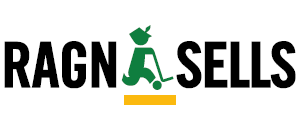Press release -
Ragn-Sells and Kemira join forces in phosphorus recycling from sewage sludge
The environmental company Ragn-Sells and Kemira, global leader in sustainable chemical solutions for water intensive industries, are starting a collaboration to recycle phosphorus from sewage sludge in Helsingborg. The project was recently awarded SEK 51 million in support from Klimatklivet, Sweden's state investment aid supporting technology that reduces climate emissions.
The planned facility in Helsingborg is based on Ash2Phos, a patented technology that has been developed by Ragn-Sells’ innovation company EasyMining.
- Kemira is a world leader in water purification chemistry. We are proud that they choose to collaborate with us on our unique Ash2Phos technology, for large-scale recycling of the critical nutrient phosphorus, says Anna Lundbom, marketing manager at EasyMining.
The new agreement means that Ragn-Sells takes the next step and continues with the plans to build a plant for phosphorus recycling within Kemira's industrial park in Helsingborg in south east Sweden. Among other things, Kemira will supply important raw materials for the process. When fully developed, the facility is expected to create at least 30 new jobs in Sweden.
- We are very pleased to establish cooperation with Kemira in Helsingborg. It is a good location, both in terms of sustainability, infrastructure, and raw material supply, and we look forward to developing this further together, says Mikael Hedström, CEO of Ragn-Sells Treatment & Detox.
The Ash2Phos technology uses incinerated sewage sludge, from which more than 90 percent of the phosphorus in the ash is recovered. At the same time, iron and aluminum are also recycled from the water treatment chemicals used to bind the phosphorus in the sludge in the treatment plants. Kemira can then use both the iron and the aluminum again, which means another step towards a circular management of wastewater.
- We are pleased that Ragn-Sells has chosen to establish the first Nordic Ash2Phos facility with us in Helsingborg. At Kemira, we have a long history of working with technologies to remove phosphorus from wastewater and thus reduce eutrophication. Recycling of valuable materials from sewage sludge is a big step forward for more circularity in the water industry, says Per Andersson, Director Product Lines Coagulants EMEA.
Phosphorus is one of the nutrients in mineral fertilizers and crucial for agriculture to be able to produce enough food. But Europe is dependent on phosphorus from mines outside the EU, which leads to large climate emissions at the same time as the finite resource risks becoming a scarce commodity. The recycling project in Helsingborg was recently awarded SEK 51 million in investment support from Klimatklivet, a state support for innovations that reduce climate impact.
A government initiated investigation has in their report proposed a requirement that at least 60 percent of the phosphorus in sewage sludge from the water treatment plants must be recycled. The government has not yet submitted a sharp proposal to the Swedish Parliament, which means that most of Sweden's phosphorus is still wasted.
- If Sweden is to achieve the goal of zero emissions by 2045, it must be profitable to use recycled raw materials instead of newly produced ones. Therefore, we need to quickly get legal requirements that phosphorus in sewage sludge must be recycled, to a much greater degree than 60 percent, says Anna Lundbom.
For more information, please contact
Anna Lundbom, Marketing Manager EasyMining,
+4670-927 28 29, anna.lundbom@easymining.se
Mikael Hedström, CEO of Ragn-Sells Treatment & Detox,
+4670-927 27 56, mikael.hedstrom@ragnsells.com
Per Andersson, Director Product Lines Coagulants EMEA,
per.andersson@kemira.com
Emma Ranerfors, press officer Ragn-Sells,
+4610-723 24 16, press@ragnsells.com
Facts: Phosphorus
The element phosphorus, with the chemical name P, is included in mineral fertilizers and is necessary for agricultural food production. Both Sweden and the EU are dependent on imports, mainly from Morocco and Western Sahara, China, and Russia. Phosphorus today comes from phosphate ore mined in mines.
The ore often contains impurities such as the toxic heavy metal cadmium. The cadmium accompanies the fertilizer, is absorbed by plants, and ends up on our plates, and thus in our bodies.
A government inquiry presented in 2020 proposes a legal requirement that at least 60 percent of the phosphorus contained in Sweden's sewage sludge must be recycled. This means a great need for new solutions for recycling. Several other countries in Europe have already legislated for similar requirements.
In the Swedish Environmental Objectives Committee's sub-report, Havet och människan (translates The Sea and Man), which was presented in January 2021, the Committee proposes that Sweden should push within the EU for a so-called quota obligation, i.e. that a certain proportion of nutrients in mineral fertilizers must be recycled raw material.
Facts: Klimatklivet
Klimatklivet is Sweden’s state investment aid for local and regional measures that reduce emissions of carbon dioxide and other gases that affect the climate. The investment is part of the state budget decided by Parliament.
In the state budget for 2021, SEK 2.3 billion is earmarked for investment support within Klimatklivet and for expanding charging infrastructure.
Topics
- Natural resources
The Ragn-Sells Group is a privately held corporate group, operating companies in four countries.
Since 1966, we've been involved in waste management, environmental services and recycling. We collect, treat and recycle waste and residual products from businesses, organizations and households.
www.ragnsells.com
